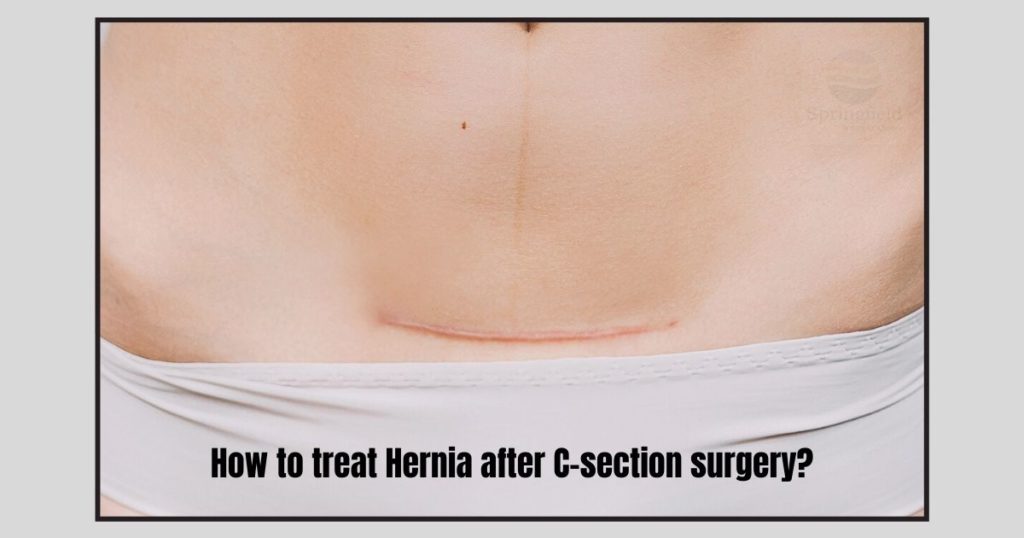Although giving birth to children in a natural way is the best, certain medical conditions like the improper position of the baby, fetal distress, hypertensive disorders, etc, do not permit women to undergo normal delivery. In such compromising situations, your doctor might suggest that you go for cesarean delivery. A Caesarean or C-section as it is called is a surgical procedure that involves delivering the baby through surgery in the mother’s abdomen and uterus. The advancements in medicine have made it possible to reduce the number of complications, maternal and infant mortality rates associated with childbirth. One such possible but very rare complication of C-section is Hernia.
What is a Hernia?
A hernia occurs when a portion of the intestine or stomach protrudes out through a weakened region in the abdominal muscle wall. A hernia usually does not go away on its own and cannot be treated with medications. Treating hernias will definitely require surgical intervention. The type of hernia associated due to any past surgery is called Incisional hernia. So any hernia in the abdomen happening due to C-section can only be an Incisional hernia.
What are the causes of Incisional Hernia after a C-section?
There are several factors that can cause or increase the risk of getting incisional hernia after a cesarean. Some of these factors may also be linked to the physical characteristics of a woman.
- Infection in the surgical incision site
- Not following doctor’s advice on strenuous physical activities after a c-section surgery like weight lifting, sitting on the floor, squatting, etc
- In obese or overweight women, the pressure applied on the abdomen can increase during pregnancy which ultimately becomes higher during delivery. This can increase the chances of pushing the lining through the incision made during C-section.
- Women who generally have weak abdominal tissue may fail to keep the intestines intact after a C-section.
- Repeated pregnancies, large babies or bearing twins or more numbers of babies would have weakened the abdominal muscles. These can increase the risk of hernia after each delivery.
- Women with gestational diabetes during pregnancy can have an increased risk of getting a hernia. This risk primarily happens due to the infection at the surgical site.
- In certain cases, the size of the incision may have to be increased to perform a successful delivery. This also can increase the chances of incisional hernia.
- Any history of hernia can increase the risk of incisional hernia recurring or coming back.
Treatment for Incisional Hernia after a C-section:
Usually, surgery is the only available treatment option for incisional hernia. As mentioned earlier, there are no medications to treat any type of hernia and they do not go away on its own without surgery.
Usually, the incisional hernia is diagnosed after many months or years of childbirth through c-section. Hence if the diagnosis confirms the presence of incisional hernia gets your surgery done as per your surgeon’s advice. This is because complications like strangulation and incarcerated hernia are high in incisional hernia and hence the need to undergo surgery immediately.
The surgeon might use either a fully open surgical approach or a minimally invasive laparoscopic approach based on the complexity of the problem.
